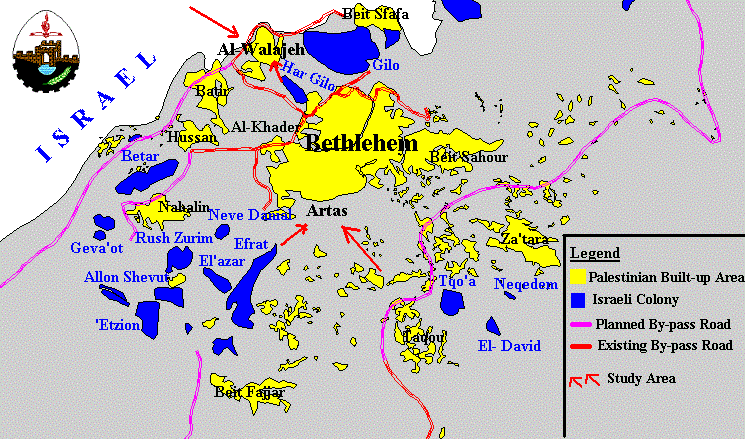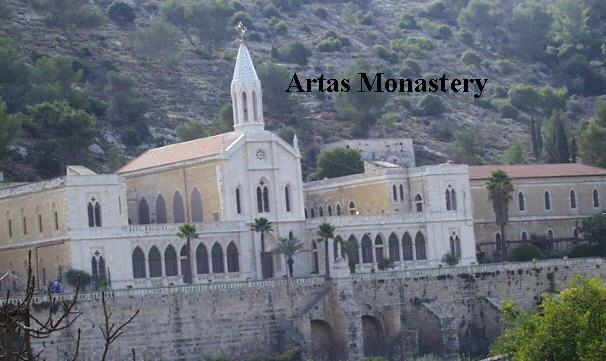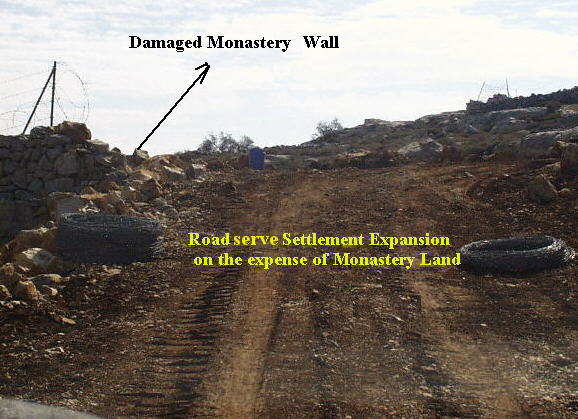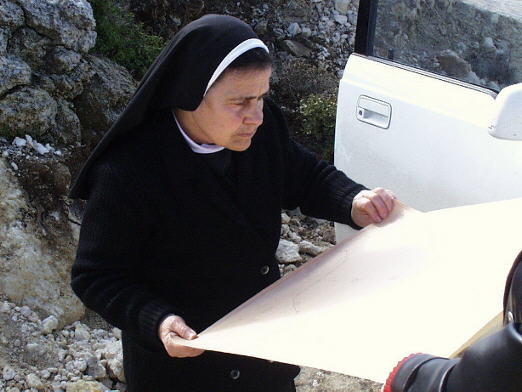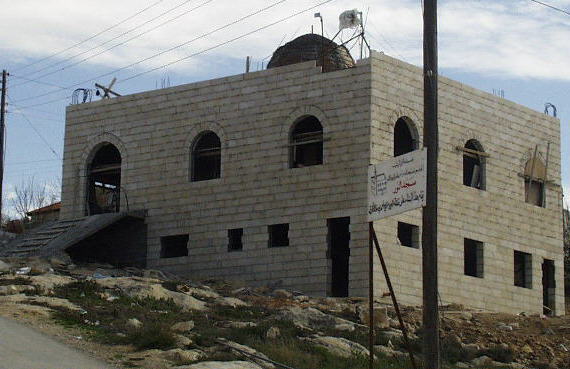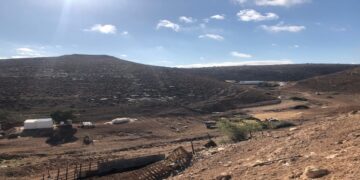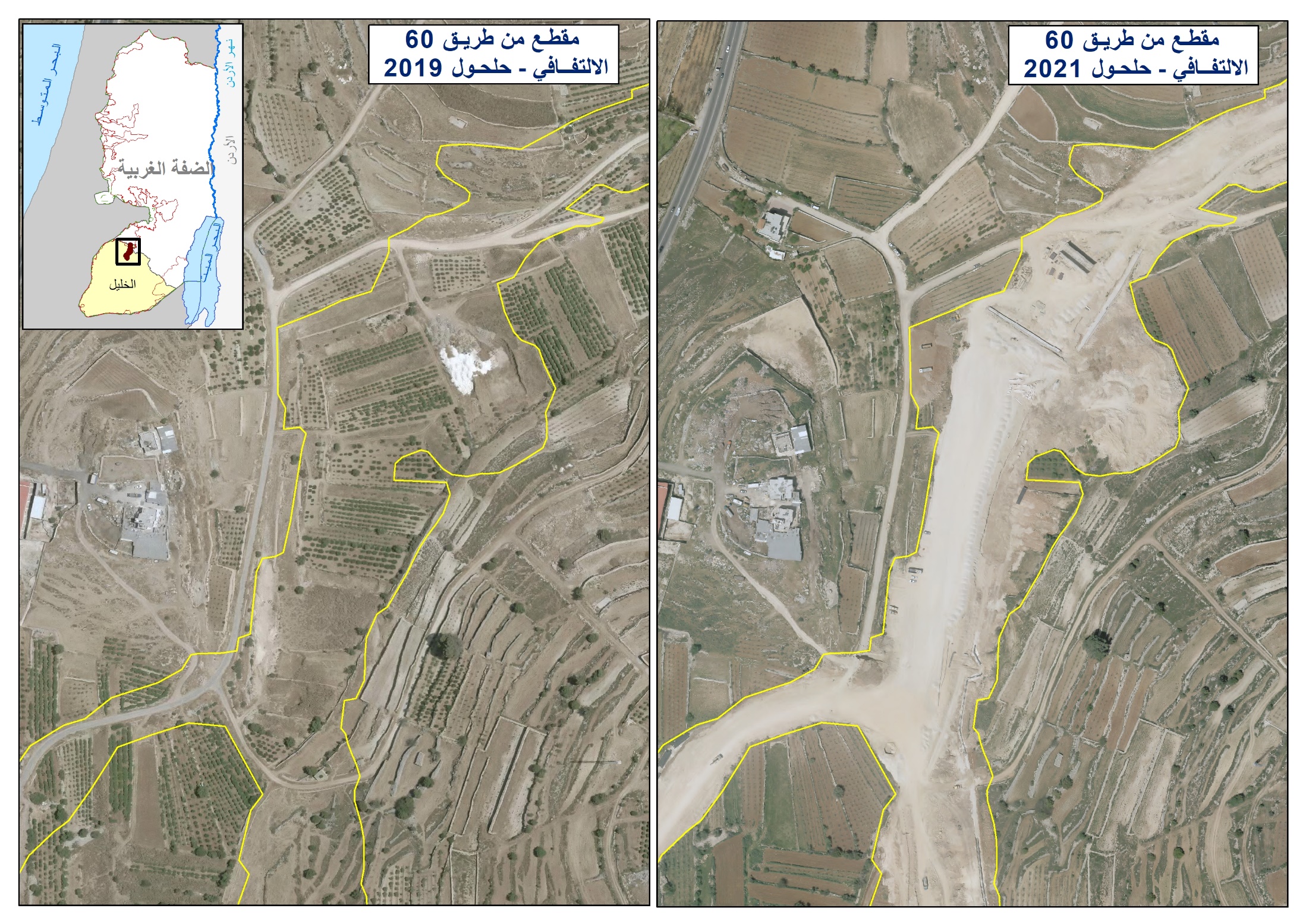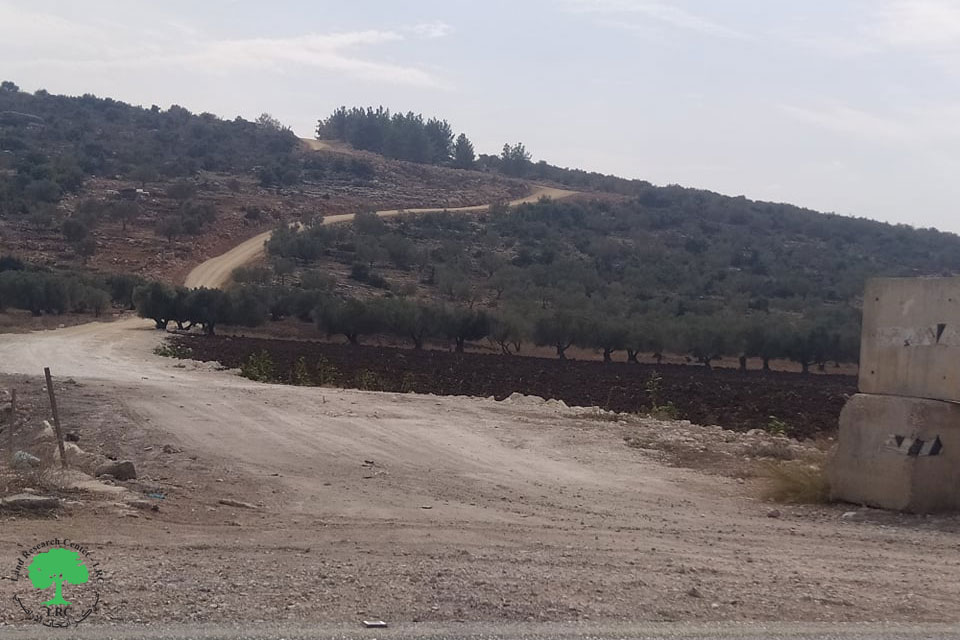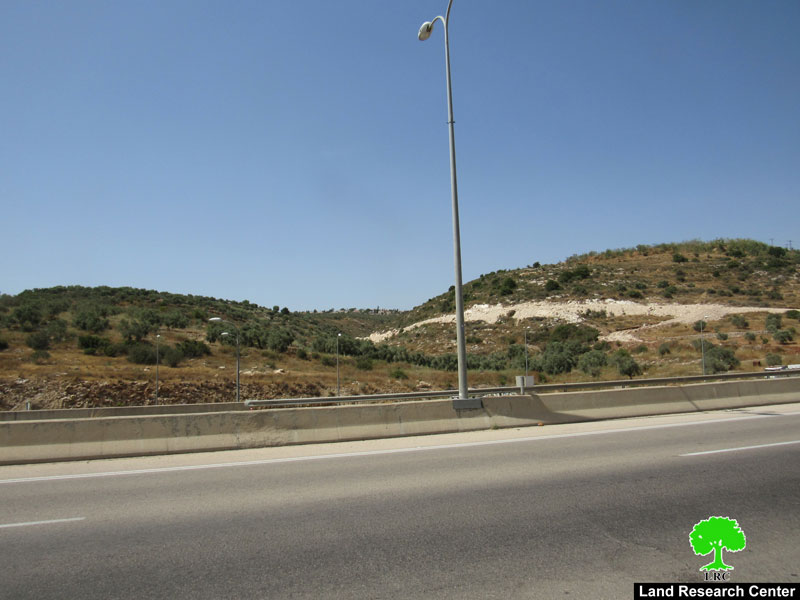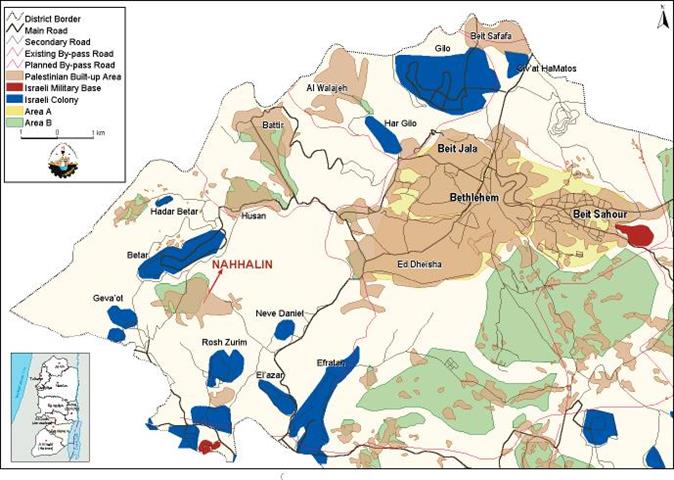The State of Israel reached a new low recently through a series of demolitions of Palestinian holy sites. These acts of sacrilege occurred in the Bethlehem District, an area which has recently been subjected to increased levels of aggression by the Israeli government.
The Palestinian village of Artas, with a population of 2,684 people, is located to the south of Bethlehem (Figure 1) . Its most famous archeological site is an ancient monastery owned by the Catholic Church (Figure 2). The monastery was built in 1901, and was opened as a mission on November 12 of the same year by nine Uruguayan nuns. In 1903, with support from the Vatican, the nuns opened a clinic, a primary school, and an orphanage to serve the people of Artas and its surroundings. Up to this moment, the monastery helps the poor and the neglected in an effort to give them peace and happiness.
Figure 1: Location map of Artas village.
Figure 2: Artas monastery owned by the Catholic Church.
On 24 January 1999, Artas witnessed excavation activity by radical Jewish colonists from the nearby Israeli colony of Efrat. Several colonists showed up with bulldozers and began digging into Artas land in an attempt to open a new by-pass road linking the colonies west of Artas to those in the east . They were heavily armed and threatened to shoot anyone who tried to stop them as they slashed into Palestinian soil, including the land of Artas' historic monastery (Figure 3). The Efrat colonists, under the protection of the Israeli military forces, demolished part of the monastery's stone wall and expropriated 30 dunums (1 dunum = 1/10 hectare) of its land (Figure 4). The monastery was exposed to similar harassment by the colonists of Efrat two years previously in an attempt to expand their colony. To prevent these activities, the nuns and village members marked the borders of the monastery by drawing crosses on all of its stone walls.
Figure 3: Damaged monastery wall.
Figure 4: Nun proving true ownership of monastery land.
The Papal mission in Jerusalem lodged a strong protest to the Israeli Foreign Minister following the Israeli confiscation. Moreover, 170 dunums adjacent to land owned by the Islamic Waqf are threatened to be confiscated. Tens of Artas families have been exposed to a continuous wave of harassment by the Jewish colonists from nearby colonies. They have already uprooted their trees and prevented them from reclaiming their land.
El Walajeh, a village of around 2,500 people located 10 kilometers southeast of Jerusalem, is surrounded by the Jewish colonies of Gilo and Har Gilo (Figure 1). This village has also been the target of recent acts of sacrilege by the Israeli government. On 12 January 1999, the Israeli police delivered a stop order for the emerging structure of a newly built mosque (). This village has also been the target of recent acts of sacrilege by the Israeli government. On 12 January 1999, the Israeli police delivered a stop order for the emerging structure of a newly built mosque (Figure 5). Two weeks later, a demolition order was issued claiming that the mosque was built without a permit on land zoned for agricultural use.
Figure 5: Newly built El Walajeh mosque.
The people of El Walajeh challenged this decision, and continued building in a vow to resist any attempt to knock down the mosque. On 1 February 1999, the villagers rushed to complete the construction of the new mosque despite Israeli threats to demolish it.
Enthusiastic workers have completed the walls of the two-story structure and are preparing to place the roof on the 170 square meter building. In addition to the mosque, 37 Palestinian homes have received demolition orders which the Israeli government claims were built without proper authorization. The demolition of the mosque is frozen for the moment.
These destructive acts come in an attempt to construct an industrial zone and an additional 400 housing units for the Gilo colony. The confrontation over the mosque is only the latest in a half-century running battle between Israelis and Palestinians in the area, which lies on the 'Green Line' separating Israel from the West Bank. Over 2,000 demolition orders of Palestinian houses are currently outstanding, and the construction of more by-pass roads to serve Israeli colonies endangers the security of an increasing number of Palestinian families.
It is clear that even holy places are not safe from Israeli unilateral activities. These inadmissible acts of desecration to holy places are in total violation and contradiction with the prospects of human rights and a just and comprehensive peace.
Prepared by:
The Applied Research Institute – Jerusalem


